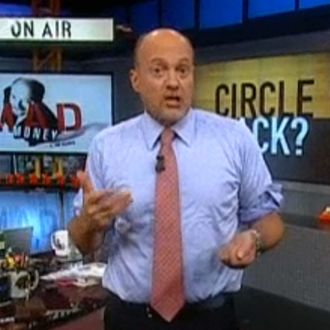
While 2008 and 2009 were horrible years for the financial industry and the economy at large, they were indisputably great for business news organizations that got to cover the wreckage. The backdrop of the worst economic crisis since the Great Depression led to a golden age of American business journalism, in which every day heralded multiple huge stories. Banks going under! Billion-dollar bailouts! Lawsuits! Congressional hearings!
Now Wall Street is boring. Sure, there is the occasional outrage, but most of the financial sector’s sharp edges have been sanded down, its eccentricities and peccadilloes ironed out by five years of regulation and magnifying-glass public scrutiny. Today, a day of financial news might include a scoop about Dodd-Frank implementation (zzz), an update on the race for the Federal Reserve chairmanship (zzzzzzz), or maybe a scaremongering segment about another housing bubble (zzz — wake up, check Zillow, see that homes are still below 2006 prices, put head back on pillow — zzzzzzzzzz).
As a result of the recovery and the relative dearth of juicy financial news out there, the entire business-news apparatus is falling apart. CNBC, the market leader in all things stock-y, has seen its ratings slide to the lowest level in two decades, according to the Post.
It’s not just CNBC. Fox Business News, CNBC’s plucky upstart competitor, is also experiencing a viewership decline in most of its programming hours. And although ratings figures for Bloomberg TV aren’t readily available, it’s safe to say that the network’s “strategic repositioning” to focus on digital video means that not all is well in analog-land.
By traditional metrics, ratings for business TV shouldn’t be dropping now. The stock market is booming, home values are up, and as ordinary Joes and Janes watch their 401(k)s grow and get interested in making investments again, shows like Mad Money — where Jim Cramer screams at viewers about which stocks to buy and which to sell — are well positioned to capture their interest. And yet, nobody is watching. That’s probably a good thing. Mom-and-pop investors really shouldn’t be buying stocks, and shows that encourage them to compete with information-advantaged professional investors are almost always inviting them to lose money.
Still, even though the nation’s (relative) prosperity and calm since 2011 or so has been great for most of us, it’s made it a very bad time to be a CNBC executive. Short of praying for another recession, or rolling out Closing Bell With Miley Cyrus, there’s nothing much they can do to improve their fortunes.





























